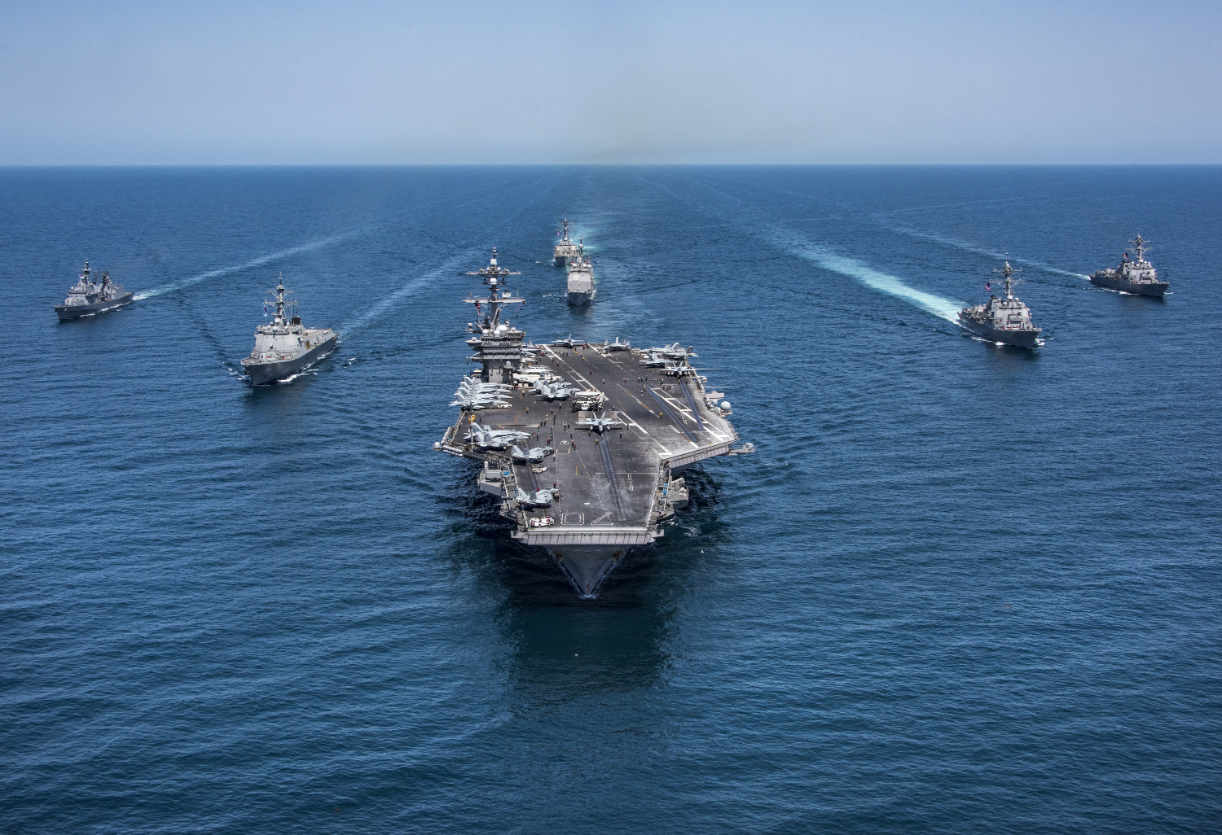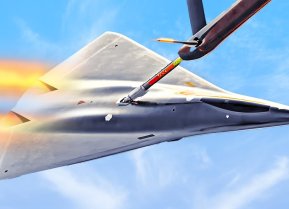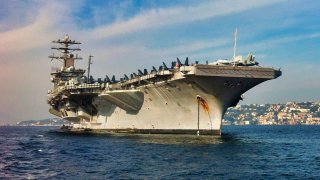U.S. Navy Aircraft Carrier USS Nimitz Now Has an 'End Date'
The USS Nimitz (CVN-68), the lead ship of the Nimitz-class supercarriers, is nearing the end of its service life with retirement planned for 2027. The U.S. Department of Defense has already awarded an $18 million contract for pre-advanced planning to begin the process of defueling and inactivation.
Summary and Key Points: The USS Nimitz (CVN-68), the lead ship of the Nimitz-class supercarriers, is nearing the end of its service life with retirement planned for 2027. The U.S. Department of Defense has already awarded an $18 million contract for pre-advanced planning to begin the process of defueling and inactivation.
-Despite calls to extend its life, the carrier is undergoing final upgrades and preparations for potential last deployments.
-Decommissioning a nuclear-powered warship like the Nimitz is a costly and complex process, as demonstrated by the ongoing dismantling of the USS Enterprise (CVN-65), which could take years and cost up to $700 million.
The End is Near for Aircraft Carrier USS Nimitz
The United States Navy's Nimitz-class supercarriers are among the largest warships ever built. It took significant time, planning, and effort – not to mention money – to build each of the 10 carriers of the Nimitz class, and it will take additional time, planning, effort, and money to see their safe disposal.
It will likely cost hundreds of millions of dollars for the scrapping of the lead vessel USS Nimitz (CVN-68), which now has a planned 2027 inactivation date – although there have been calls from some U.S. Navy officials to extend the life of the carrier.
It now appears that isn't likely to happen as last week, the United States Department of Defense (DoD) released its latest military contract announcements. That included a contract for more than $18 million for the "pre-advanced planning" that is necessary to begin the final planning and preparation for CVN-68's eventual retirement.
"Huntington Ingalls Inc., Newport News, Virginia, is awarded a $18,394,985 cost-plus-fixed-fee modification to previously awarded contract (N00024-19-C-2100) to procure additional support for pre-advanced planning for Nimitz (CVN 68) Class aircraft carrier defueling and inactivation. Work will be performed in Newport News, Virginia, and is expected to be completed by November 2024. Fiscal 2024 operations and maintenance (Navy) funds in the amount of $18,394,985 will be obligated at time of award and will expire at the end of the current fiscal year. The Naval Sea Systems Command, Washington, D.C., is the contracting activity," the Pentagon announced on August 28, 2024.
It should be stressed that USS Nimitz is currently homeported at Naval Station Bremerton in Washington State (now part of Naval Base Kitsap), and won't actually head to Newport News, Virginia, this year. Instead, the nuclear-powered supercarrier, which a Planned Incremental Availability (PIA) in Puget Sound Naval Shipyard in June, is preparing for what is likely to be among her final deployments.
According to reports, some two million man-hours were spent on the latest enhancements, even as the carrier is set to be retired by the end of next year.
The carrier's elevators and crew quarters were upgraded – and while the end is near for the vessel, it is still important that every facet of the ship is in top condition should it have to be deployed in combat.
Retirement Planning
The sea service is spending nearly $20 million in the pre-planning likely as an effort to ensure that this doesn't end up costing hundreds of millions or even billions of dollars to dispose of the carrier.

The U.S. Navy is still dealing with the recycling of USS Enterprise (CVN-65), the world's first nuclear-powered aircraft carrier. She was officially decommissioned in February 2017, and it could take at least five years and cost upwards of $700 million at a commercial yard to see her dismantled.
By contrast, the conventionally-powered USS Kitty Hawk (CV-63) and USS John F. Kennedy (CV-67) were each sold to International Shipbreaking Limited in Texas. The shipbreaker only paid a single penny for each of those carriers, but it was still better than what is happening with the nuclear-powered warships where the U.S. Navy (and by that we taxpayers) are footing the bill to see a retired warship broken up!
Author Experience and Expertise: Peter Suciu
Peter Suciu is a Michigan-based writer. He has contributed to more than four dozen magazines, newspapers, and websites with over 3,200 published pieces over a twenty-year career in journalism. He regularly writes about military hardware, firearms history, cybersecurity, politics, and international affairs. Peter is also a Contributing Writer for Forbes and Clearance Jobs. You can follow him on Twitter: @PeterSuciu. You can email the author: [email protected].
Image Credit: Creative Commons and/or Shutterstock.


